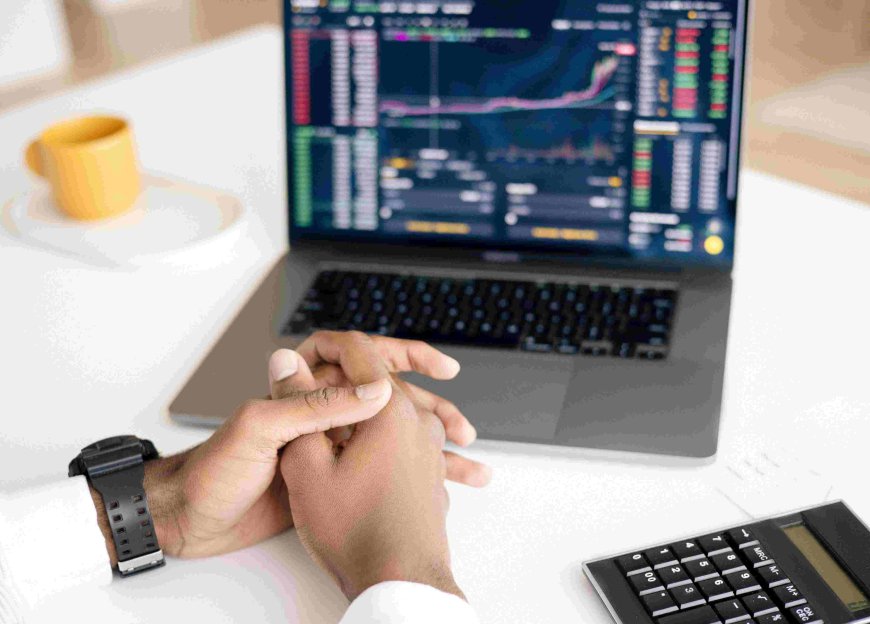What You Need to Know About AI & Machine Learning in Trade
Are you curious to know more about AI and Machine Learning in trade? If so, then keep reading! In this article, you'll be able to know more about it with its key aspects!

What to know more about AI and Machine Learning? Then keep reading! In this article, we’ll be talking about all its key aspects for you to better understand what it is quickly and easily. Trade is transforming thanks to artificial intelligence (AI) and machine learning (ML), which improve efficiency, accuracy, and personalisation.
Aspects of trade are changing due to these technologies, including risk management, regulatory compliance, automation, and predictive analytics. For companies trying to maintain their competitiveness in a changing market, it is essential to comprehend their applications and ramifications.
To help you better understand the jist of AI and Machine Learning in trade, below is a rundown of its key aspects:
1 - Predictive Analysis
The potential of artificial intelligence to forecast consumer behaviour and market trends is one of the most important effects on commerce. The intricacy and quantity of contemporary data can provide challenges for traditional forecasting techniques. But AI is particularly good at sifting through large information to find patterns and make more accurate predictions about future trends.
Machine learning models can analyse both past and current data to estimate demand, optimise inventory, and modify pricing strategies as necessary. Businesses may foresee changes in the market and make data-driven decisions with the aid of this predictive power.
2 - Automation
Another area where AI and ML are having a significant impact is automation. Many repetitive operations, including order processing, inventory management, and logistics, are part of the trade. Automation technologies driven by AI are capable of doing these activities more accurately and effectively than human labour.
For example, automated systems may handle shipments to guarantee on-time delivery, replenish items when stock runs short, and track inventory levels in real time. Businesses may cut expenses, minimise human error, and free up staff to work on more important tasks by automating repetitive procedures.
3 - Risk Management
Trade risk management is also changing thanks to AI and ML! Conventional risk assessment techniques always rely on imprecise data and can be sluggish. On the other hand, real-time data from various sources may be analysed by AI models to swiftly and precisely detect any threats.
AI is capable of anticipating supply chain disruptions, for instance, by keeping an eye on market movements, natural disasters, and geopolitical events. Additionally, by identifying odd patterns and raising red flags for questionable transactions, machine learning algorithms can identify fraudulent activity.
By taking a proactive approach to risk management, companies may minimise the effect of possible hazards and react quickly to them.
4 - Market Insight
Understanding the workings of the market is crucial for firms to remain competitive. Real-time market data analysis using AI and ML may yield insightful information on pricing tactics, rivalry, and new trends. AI, for instance, may dynamically modify a business's prices to be competitive by keeping an eye on what its rivals are charging.
Furthermore, machine learning models can recognise new customer preferences and market trends, giving firms the ability to proactively modify their strategy. These insights enable firms to take advantage of new possibilities and make well-informed decisions.
5 - Personalization
In commerce, personalisation is becoming more and more significant, and artificial intelligence is essential to providing individualised experiences. Artificial intelligence (AI) can recognise unique tastes and behaviours from consumer data, which enables companies to customise their product lines and advertising campaigns.
Recommendation engines powered by AI, for example, may provide product recommendations to users based on their browsing and purchase histories. Increased sales and long-term growth are the results of this degree of personalisation, which also increases customer pleasure and loyalty.
6 - Regulatory Compliance
For firms, navigating the complicated regulatory environment of commerce may be difficult. Compliance may be made easier by using AI and ML to automate reporting and monitoring procedures.
Artificial intelligence (AI) systems are capable of monitoring regulatory developments and guaranteeing that a company's activities adhere to trade rules and norms. AI, for instance, may examine import and export paperwork to ensure that customs laws are being followed.
Businesses may lower their risk of expensive fines and penalties while maintaining seamless and legal trade operations by automating compliance chores.
7 - Trade Finance
AI is lowering risks and optimising procedures in trade finance. Conventional approaches to fraud detection and credit scoring can be laborious and prone to mistakes. Large volumes of financial data may be analysed by AI algorithms, which can then be used to correctly determine creditworthiness and spot fraudulent activity.
AI, for example, may assess a business's financial standing by looking at its payment patterns, transaction history, and other pertinent information. This automated method lowers the chance of defaults while expediting the credit approval procedure.
AI-powered systems may also identify irregularities in financial transactions, alerting companies to possible fraud in real-time and shielding them from monetary losses.
Take away
Trade practices that use AI and ML not only maximise efficiency but also create new avenues for development and innovation. To experience efficient AI and ML consider using trading platforms that have interested them in their systems like Interactive Brokers (IBKR), Trade Ideas, QuantConnect, Kavout and the latest version of MetaTrader 4– MetaTrader 5!
